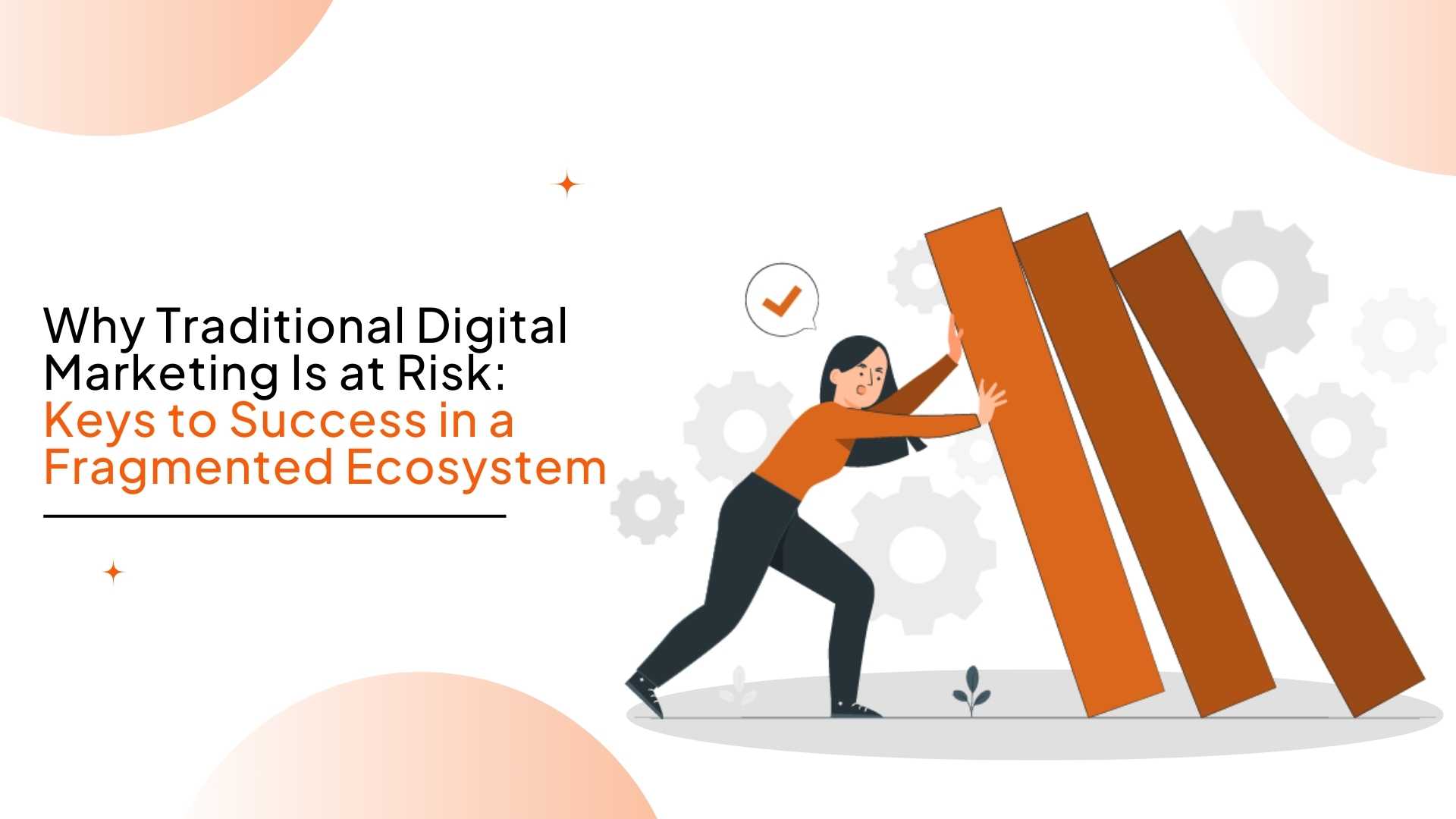

digital marketing
Why Traditional Digital Marketing Is at Risk: Strategies for 2025
Why Traditional Digital Marketing Is at Risk: Strategies for 2025
SEO (E-E-A-T), and diversified content strategies while adopting a proactive, trust-first approach. Relying on a single platform or advertising model is no longer sustainable. In this shifting landscape, the ability to adapt, build trust, and engage audiences through genuine value and strategic visibility will define long-term success.
Why Traditional Digital Marketing Might Be at Risk
Depending on the upcoming DOJ verdict, advertisers, SEO professionals, and brand managers will face increasing challenges. Limited access to consumer data, rising ad costs, and diminishing ROI from Google’s ecosystem will make traditional strategies, once crucial for visibility and engagement, less effective. In fact, 34% of businesses already struggle with limited budgets for essential SEO tools, making it increasingly difficult to compete in a landscape dominated by paid advertising.
As regulatory scrutiny intensifies and Google adjusts its business model, marketers must rethink their reliance on the platform’s once-unified data streams. With advertising costs continuing to climb and third-party data restrictions tightening, brands must reassess their strategies, diversify traffic sources, and prioritize owned media channels to maintain relevance and performance. In this evolving environment, those who fail to adapt risk losing their competitive edge.
Adapting to Google’s Evolving Algorithms: SEO Key Trends for 2025
The search landscape is evolving rapidly. As Google and other search engines refine their ranking criteria, businesses must adapt their strategies to maintain relevance and engagement. With 45% of businesses operating with less than $1,000/month for SEO tools, they must prioritize and be strategic when investing in digital marketing. Smart, targeted investments in SEO and content creation will be key to navigating these changes. Below are some key trends that will help your digital success in the coming years:
1. AI in SEO: AI-powered tools are transforming SEO by enabling data-driven personalization, automated keyword optimization, and predictive analytics. These technologies help streamline content strategies and improve search performance, allowing marketers to focus on higher-level strategy and creativity. About three-quarters of SEO professionals use AI primarily to save time, leveraging automation to handle repetitive tasks like content generation, technical audits, and SERP analysis.
Limitations:
· Lack of Originality: AI-generated content can be generic, reducing brand differentiation.
· Risk of Misinformation: AI may produce inaccurate or outdated content, requiring human oversight.
· Bad quality: AI-generated content lacks quality control, often requiring edits for grammar, structure, and consistency.
2. Zero-Click Searches & the Changing SERP Landscape
Designed to answer queries directly on the results page, Zero-Click Searches decreases click-through rates (CTR) in traditional links. This shift forces brands to rethink their SEO approach like optimizing for featured snippets, knowledge panels, and direct answers to increase brand visibility.
Limitations:
· Lower Website Traffic and Conversion Rates: With nearly 60% of Google searches ending in zero clicks last year, fewer users visit websites, reducing organic traffic and engagement.
· Reduced Data Insights: Fewer website visits mean businesses collect less user behavior data, making it harder to refine marketing strategies.
· Increased Competition: Optimizing for featured snippets and knowledge panels is essential, but ranking for them is unpredictable and highly competitive.
3. E-E-A-T Standards: Google will emphasize Experience, Expertise, Authority, and Trustworthiness (E-E-A-T) when ranking content. Brands must prove their credibility through expert-driven, well-researched material.
Limitations:
· Higher Content Production Costs: Creating expert-driven, well-researched content requires more resources, from industry specialists to fact-checking.
· Longer Ranking Time: Establishing authority and trust takes time, making it harder for newer brands to gain visibility quickly.
· Limited AI Contribution: AI-generated content lacks firsthand experience, which Google prioritizes, reducing its impact on rankings.
The Power of Anti-PR in a Changing Search Landscape
With Google’s algorithm updates reshaping how brands are discovered online, Anti-PR presents a modern solution to the limitations of traditional PR. While conventional PR focuses on controlling a company’s image, Anti-PR focuses on creating authentic, credible content that resonates with audience expectations and search engine algorithms. As Google increasingly prioritizes E-E-A-T factors, disruptive strategies enable businesses to build trust and authority through third-party validation, making content more likely to engage consumers and rank well on search engines. This approach allows companies to stand out in a crowded digital landscape by focusing on what truly matters—authenticity and credibility.
By prioritizing trust and producing valuable, research-backed content, businesses can improve their SEO rankings and online visibility. As algorithms continue to reward credibility and authority, aligning content with these evolving standards is crucial for long-term success. This proactive, results-driven strategy not only enhances public perception but also strengthens SEO efforts, ensuring businesses remain relevant. With the ongoing evolution of algorithm changes, Anti-PR equips companies with the tools to stay competitive and maintain sustained visibility.

Karla Jo Helms
Karla Jo Helms is the Chief Evangelist and Anti-PR™ Strategist for JOTO PR Disruptors™. Karla Jo learned firsthand how unforgiving business can be when millions of dollars are on the line—and how the control of public opinion often determines whether one company is happily chosen, or another is brutally rejected. Being an alumnus of crisis management, Karla Jo has worked with litigation attorneys, private investigators, and the media to help restore companies of goodwill back into the good graces of public opinion—Karla Jo operates on the ethic of getting it right the first time, not relying on second chances and doing what it takes to excel. Karla Jo has patterned her agency on the perfect balance of crisis management, entrepreneurial insight, and proven public relations experience. Helms speaks globally on public relations, how the PR industry itself has lost its way and how, in the right hands, corporations can harness the power of Anti-PR to drive markets and impact market perception. More information is available at www.jotopr.com/.




